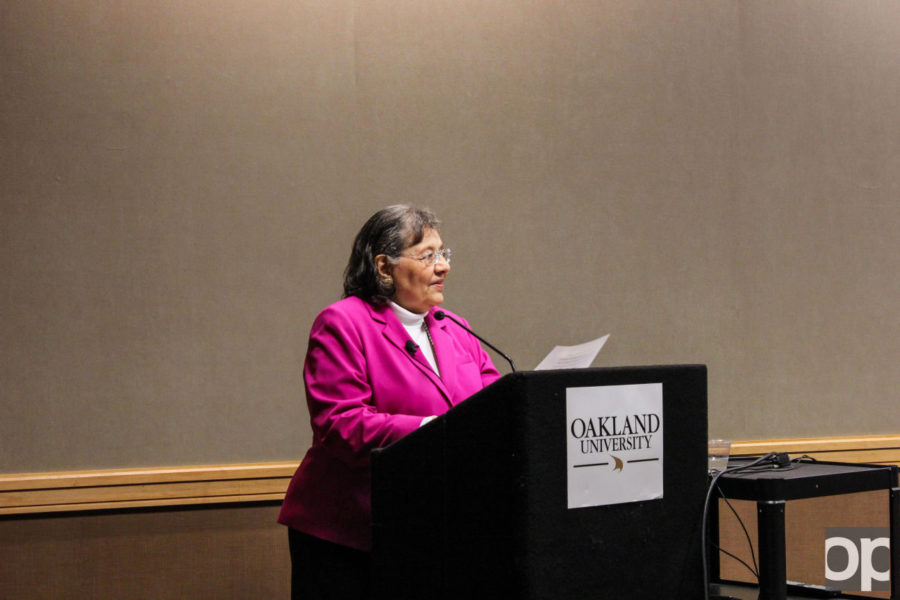A passion for racial equality
Department of History and the Dean’s Office of the College of Arts and Sciences sponsored “The 1960s Civil Rights Movement” lecture event on Monday, Feb. 1, hosting civil rights activist Diane Nash.
African American Celebration Month (AACM) continued on Feb. 1 with a lecture “The 1960s Civil Rights Movement,” presented by civil rights activist Diane Nash.
Nash shared her experiences as a prominent activist who promoted racial equality during the 1960s.
“I grew up on the south side of Chicago, which was segregated but didn’t have overt segregation like the southern states,” Nash said.
“Nashville was my first experience with this type of segregation and I obeyed segregation rules, but I felt like I was agreeing that I was still inferior to those who were scared to leave the front door.”
During her lecture, Nash shared her experience with the various sit-ins that took place in the 60s. She joked about how some of the ladies were worried about becoming fat from sitting at the same lunch counter every day.
She applauded the people in New York and Missouri who are taking a stand and fighting for justice, especially justice for black men.
“Diane Nash emerged as a passionate civil rights advocate while being a student at Fisk University in Nashville, Tennessee,” Todd Estes, associate professor of history and chair of the history department, said.
While a student at Fisk, she was a leader of the Nashville Student Movement. The movement helped coordinate a sit-in campaign to end racial segregation at lunch counters.
Along with being a part of the Nashville Student Movement, Nash took on other roles that showed how dedicated and passionate she was about promoting racial equality.
She became active with the Freedom Riders, who worked to desegregate interstate bus travel, and was a founding member of the Student Non-Violent Coordinating Committee, a co-initiator of the Alabama Voting Rights Project and a supporter of the Selma Voting Rights Movement.
“Nash has been a committed activist with civil rights, who has ignored threats on her own life and put herself at risk of physical energy,” Estes said.
Many described her as a walking legend because of the things she has done to help promote racial equality.
“Nash was one of several women given recognition at the 1963 March on Washington; the activities of Dr. King, Nash and the Southern Christian Leadership Community (SCLC) played vital roles leading to the passage of the 1964 Civil Rights Act and the 1965 Voting Rights Act,” De Witt S. Dykes Jr., associate professor of history specializing in American and African American History, said via email.
“Diane Nash was chosen to fit this year’s theme for the African American Celebration Month [Preserving Our Heritage] and to assess past achievements and ongoing challenges,” he added.
After speaking about her experiences over the years, there was an opportunity for a Q-and-A. Those in attendance had a chance to hear more about Nash and her experiences with the SCLC and the Nashville Student Movement.
According to Dykes, talks like these present a unique opportunity to learn of the past, assess the present and prepare for the future.
The Department of History and the Dean’s Office of the College of Arts and Sciences sponsored this event.
For more information on AACM and upcoming events, visit oakland.edu/aacm.








